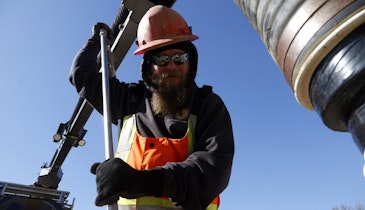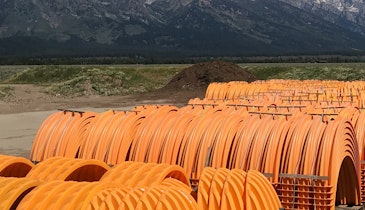Interested in Location/Detection?
Get Location/Detection articles, news and videos right in your inbox! Sign up now.
Location/Detection + Get AlertsThe city of Amsterdam, New York, is the first in the state to take advantage of a new funding program that targets money toward emergency sewer repairs.
Earlier this month, Amsterdam officials successfully secured $1 million to take care of two different projects. The money came from the state’s Water Infrastructure Emergency Financial Assistance Program, which was established in New York’s 2018 budget under the Clean Water Infrastructure Act. That act invests $2 billion in infrastructure improvements over five years, and the assistance program sets aside 10 percent of that funding each year that communities can access quickly for emergency repairs.
Amsterdam plans on using some of the funds to replace a section of pipe where there have been significant sewage backups for homes in the vicinity.
“Granted, we’ve had more rain than we usually get, but this situation has been ongoing for probably 10 years and it’s been getting worse and worse,” Mayor Michael Villa told the Daily Gazette.
The remaining funds will be used to replace a faulty sewer main that affects about 4,000 residents. Villa says the city received the money only two days after submitting its application to the state.
State Assemblyman Angelo Santabarbara, the author of the emergency funding bill, told the Daily Gazette that he wrote it last summer to help eliminate complications in acquiring funding when emergency situations arise.
“Time is of the essence,” he told the Daily Gazette. “In my experience, when you let emergencies go on and you don’t repair them immediately, you start to cause more damage and it ends up costing more in the end.”
Source: The Daily Gazette
Audit Shows Efficiency of Las Vegas Distribution System
A recent audit claims that the Las Vegas Valley Water District has one of the most-efficient distribution systems in the country.
According to the audit, last year the district was unable to bill for about 5 billion gallons of treated water, but that was still 1 billion gallons less than a decade prior and only about 5 percent of the amount of water that traveled through the district’s system. That is three times lower than the national average.
The audit found that two-thirds of that 5 billion gallons was a result of leakage, with the remaining amount due to inaccurate readings from obsolete water meters. Bronson Mack, a spokesperson for the district, told the Las Vegas Review-Journal that the district is working on replacing hundreds of obsolete water meters each year, and uses technology that measures frequencies along pipelines overnight to pinpoint leaks.
Peter Mayer, a water management expert with a Colorado-based consulting firm, told the Review-Journal that the district owes some of its system efficiency to the fact that Las Vegas Valley has seen most of its population growth over the past 30 years.
“Las Vegas is benefiting from the fact that they are a newer water system, and it’s generally easier to maintain,” Mayer says. “On the East Coast there are water systems that are hundreds of years old with losses more in the neighborhood of 30 percent of water deliveries.
“My biggest caution is that comparing between utilities is always an iffy proposition because each utility is so different. The value of comparison is really with yourself, how are you doing over time?”
Source: Las Vegas Review-Journal
New Wet Wipes Law in D.C. Receives Pushback from Congress
The strain that wet wipes have put on the District of Columbia’s collections system has resulted in a new local law set to take effect in January that bans the sale of wipes not made of biodegradable materials. But the new law was recently met with some pushback from Congress.
It’s yet another example of the kind of authority Congress can exert on the passing of local laws in D.C. A Maryland congressman, exercising a Constitutional right, moved to prevent D.C. officials from enforcing the wet wipes law by trying to insert an amendment into an unrelated federal appropriations bill.
Over the years, that Constitutional authority has been used as a way to prevent D.C. from exerting undue influence over the federal government and its workers. There were a record 26 attempts to overturn D.C. laws in the last Congress, and the current Congress is on a similar pace. The congressman who attempted to overturn the wet wipes law ultimately withdrew his amendment at the last minute.
Source: Tribune News Service






